Remove personal data from the internet
When we go to any site on the internet to sign up, there we see sign up with Gmail or Facebook and as soon as we click on these we get logged into the site. That website saves your personal data in the database.
Let us know about personal data.
Let us see how to remove your personal data from other sites
- Visit https://www.saymine.com/
- Click the Sign option then click Sign in with google
- Login with the same Gmail ID that you used on other sites so that you can remove your personal data
- Click next and drag. The company that collected data till that time will appear. Click next
- Then your dashboard will show somewhat like the below image
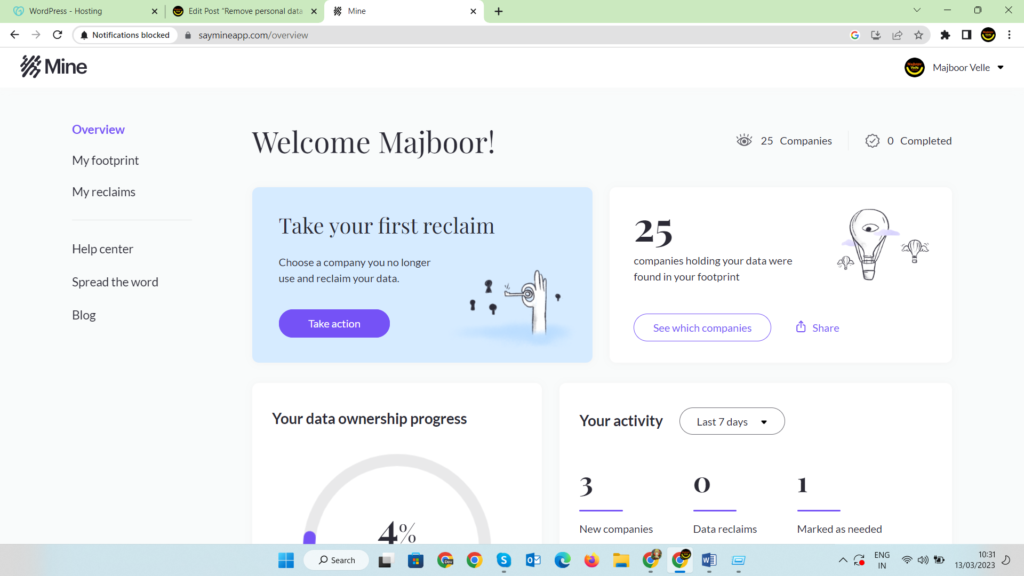
- Then click the ‘see which companies’ option button
- Here you will be shown the company/site that has your personal data
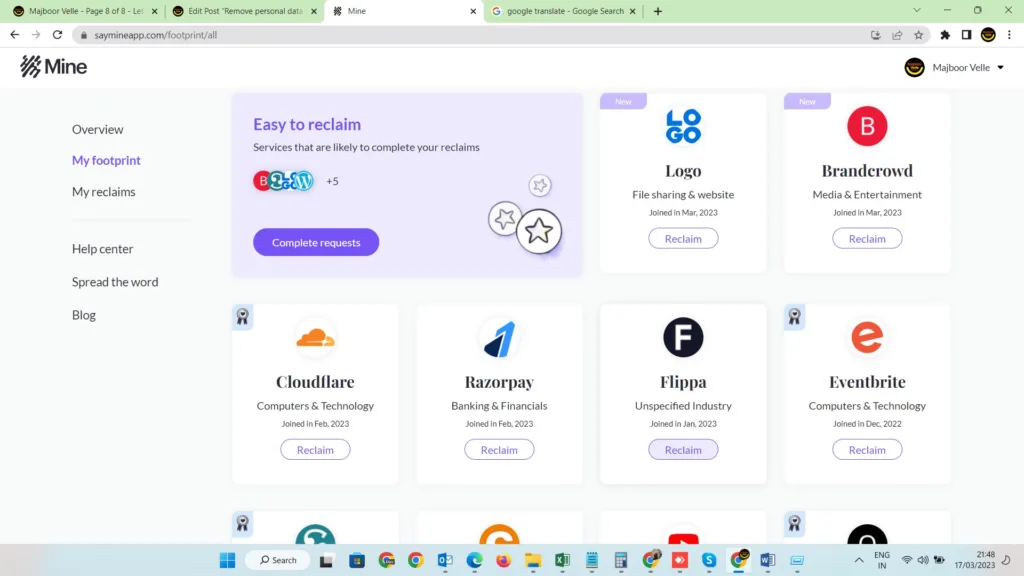
- If you want to delete your data from that company, then you click the Reclaim button.
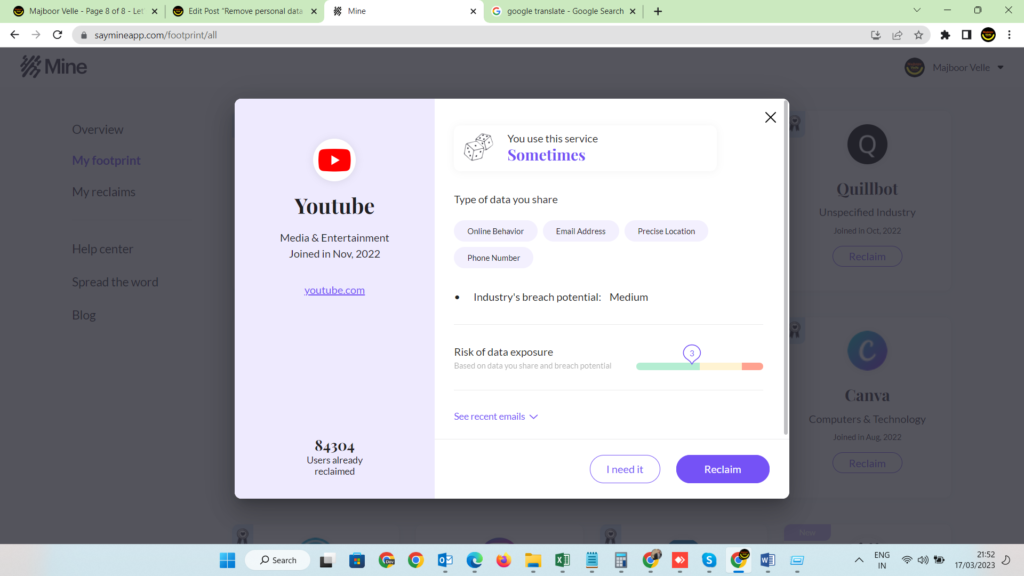
- Then click Send Request to delete My data
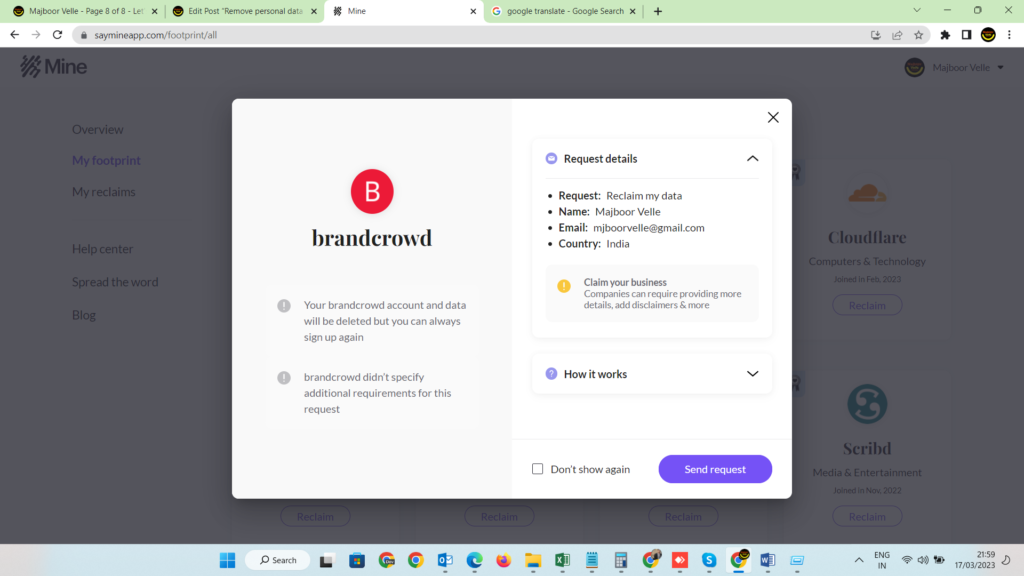
- After a few days, your data will be removed from that site.
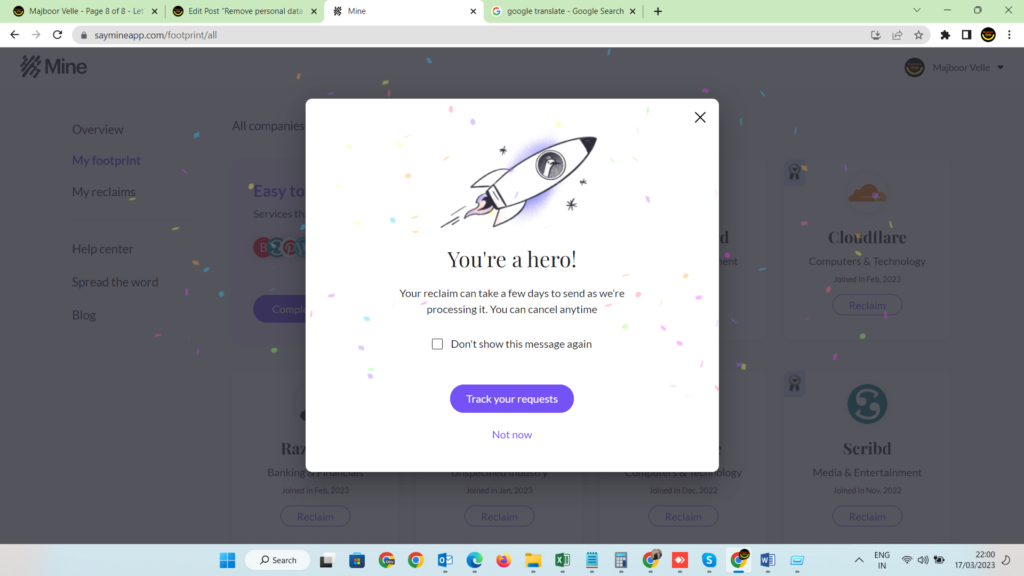
- After sending a request to delete data, you go to my profile and scroll down and click the delete mine account option because you don’t want to take any risk at all.
What is that Personal Data?
Personal data refers to any information that can be used to identify an individual or that is linked to a specific person. This can include basic identifying information such as a person’s name, address, and phone number. It also includes more sensitive information such as their social security number, financial information, health records, and online behavior.
With the widespread use of digital technology, it has become more vulnerable to unauthorized access, misuse, and abuse. Companies, organizations, and governments collect, store, and analyze personal data for various purposes, such as marketing, research, and law enforcement. While this can be beneficial in many ways, it raises concerns about privacy, security, and individual rights.
In today’s digital age, personal data is collected, processed, and stored by various entities such as businesses, governments, and organizations. It is important for individuals to understand how their personal data is being collected, used, and protected to ensure their privacy and security.
There are various laws and regulations that govern the collection and use of personal data, such as the General Data Protection Regulation (GDPR) in the European Union and the California Consumer Privacy Act (CCPA) in the United States. These laws aim to give individuals more control over their personal data and require entities to implement appropriate measures to protect it from unauthorized access, use, or disclosure.
It is also important for individuals to take steps to protect their data. One can use strong and unique passwords, enable two-factor authentication, and being cautious about sharing personal information online.
Here are some tips to help you secure your personal data:
- Use strong passwords: Use strong and unique passwords for all your online accounts, and avoid using the same password for multiple accounts.
- Enable two-factor authentication: Two-factor authentication adds an extra layer of security to your accounts by requiring a code or token in addition to your password.
- Keep your software up to date: Make sure to install updates and security patches for your operating system, apps, and web browser.
- Be cautious with public Wi-Fi: Public Wi-Fi networks are not secure, so avoid accessing sensitive information or making online transactions when using them.
- Use a virtual private network (VPN): A VPN encrypts your internet traffic and makes it harder for others to intercept your online activity.
- Limit the amount of personal information: Be cautious about the information you share online, especially on social media.
- Use reputable antivirus software: Antivirus software can help detect and remove malware and other threats from your computer.
- Back up your data regularly: Back up important data regularly to prevent losing it due to hardware failure, theft, or other events.
By following these tips, you can help protect your personal data from being stolen or compromised.
For more information or any queries, directly mail us at [email protected] or Instagram us at https://instagram.com/majboor_velle?igshid=NmE0MzVhZDY=
Nice article really helpfull